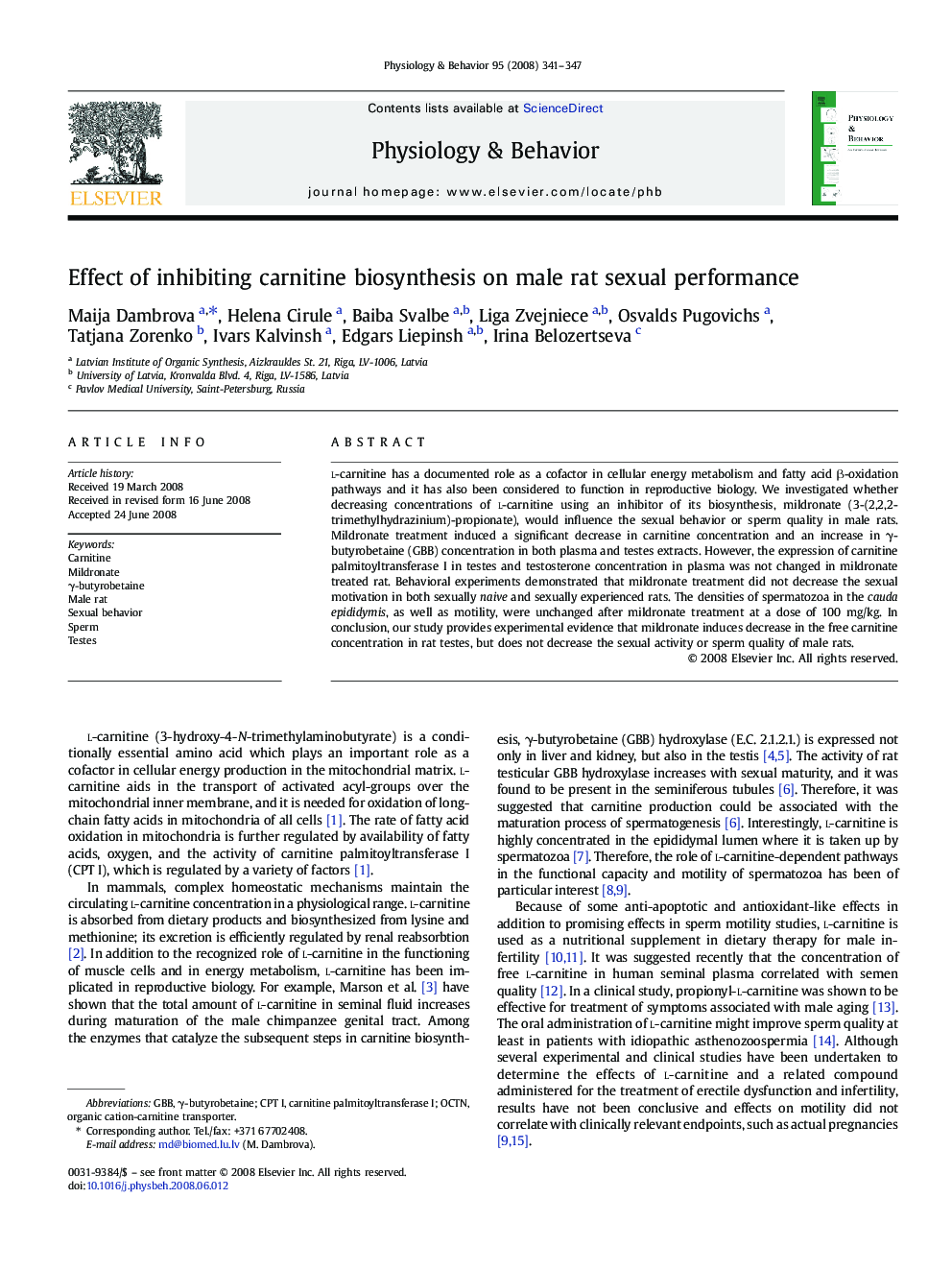| Article ID | Journal | Published Year | Pages | File Type |
|---|---|---|---|---|
| 2845326 | Physiology & Behavior | 2008 | 7 Pages |
l-carnitine has a documented role as a cofactor in cellular energy metabolism and fatty acid β-oxidation pathways and it has also been considered to function in reproductive biology. We investigated whether decreasing concentrations of l-carnitine using an inhibitor of its biosynthesis, mildronate (3-(2,2,2-trimethylhydrazinium)-propionate), would influence the sexual behavior or sperm quality in male rats. Mildronate treatment induced a significant decrease in carnitine concentration and an increase in γ-butyrobetaine (GBB) concentration in both plasma and testes extracts. However, the expression of carnitine palmitoyltransferase I in testes and testosterone concentration in plasma was not changed in mildronate treated rat. Behavioral experiments demonstrated that mildronate treatment did not decrease the sexual motivation in both sexually naive and sexually experienced rats. The densities of spermatozoa in the cauda epididymis, as well as motility, were unchanged after mildronate treatment at a dose of 100 mg/kg. In conclusion, our study provides experimental evidence that mildronate induces decrease in the free carnitine concentration in rat testes, but does not decrease the sexual activity or sperm quality of male rats.
